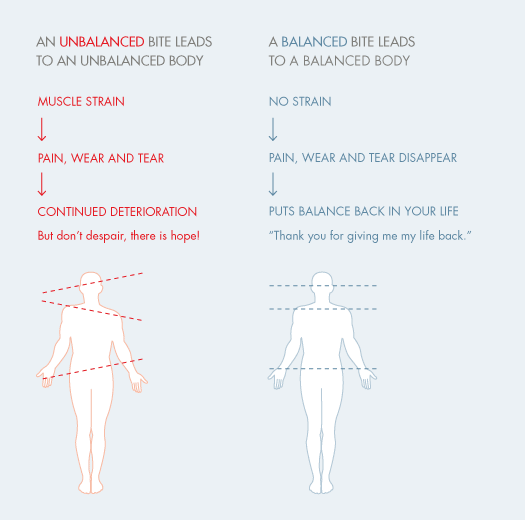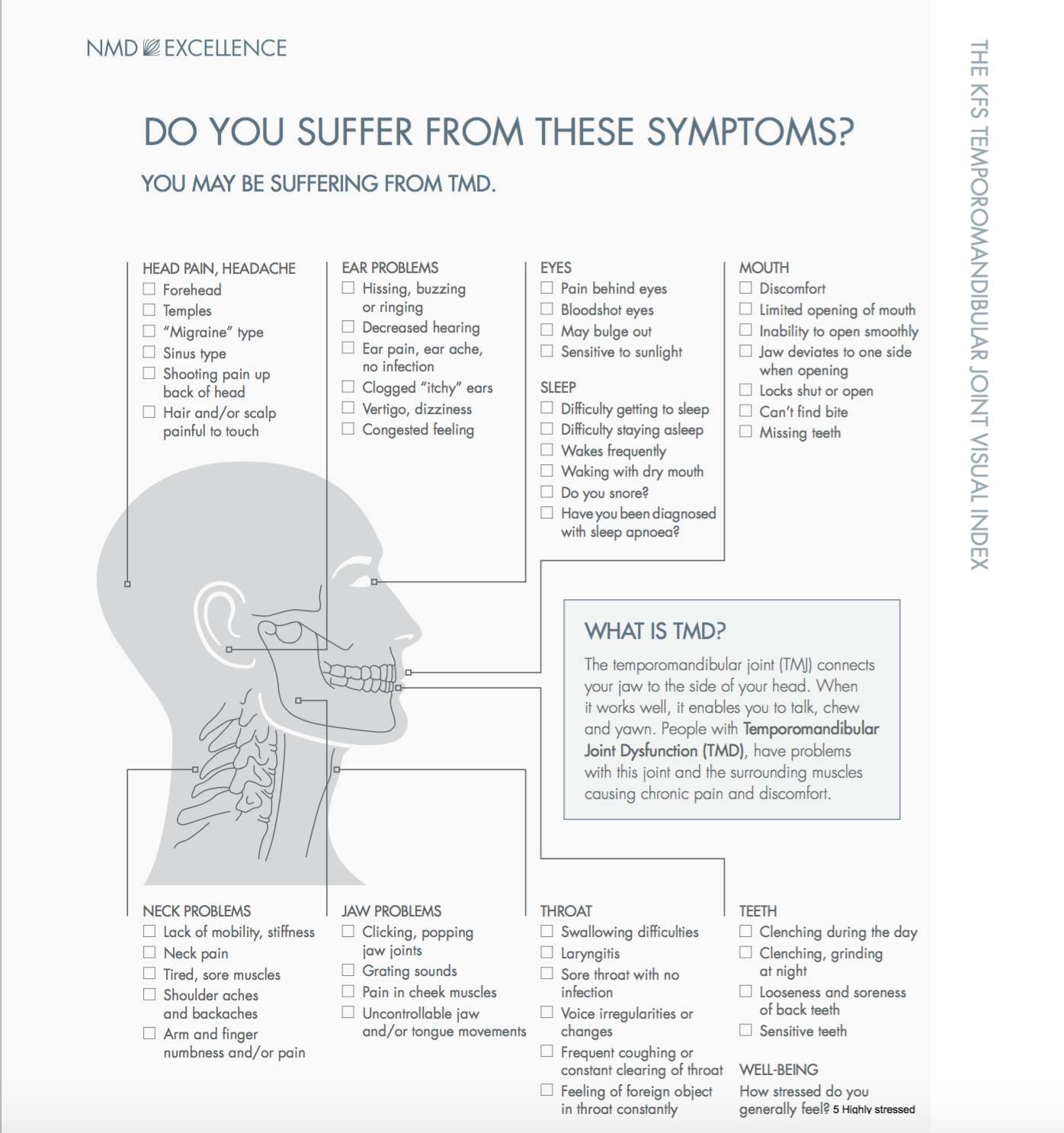Tired of putting up with pain?
Are migraines, tension headaches or other facial and neck problems making your life hell?
Are they there on a daily and weekly basis?
Are you feeling isolated because of the pain?
Do you feel that nobody understands?
Well thankfully, we do…
Pain is nature’s way of telling us that something is wrong. When everything else has been ruled out, it may be time to consider that it might be your bite.
For many years we have been helping people who suffer chronic head and neck pain as a result of Temporo-Mandibular Disorder (TMD). This is caused when your jaw and teeth come together in an unbalanced position. Even though your teeth may seem to fit together, that position can cause a lot of strain to your muscles for everyday purposes such as eating, speaking, swallowing and even resting. Pain is the result.
Tried everything and nothing has worked?
We constantly see people who have endured headaches and pain for what seems to be forever. Typically they have seen many health care practitioners, they’ve had tests and tried whatever diet, exercise, pill or device that’s been recommended and nothing has changed.
If you’ve been through that, you’ll know exactly what we’re talking about. In fact spending more money with little chance of success is a big and understandable fear for many.
What can we do to help?
At your initial consultation, we will discuss your history with you in detail, take and review your Cone Beam x-ray, make a careful clinical assessment and use medical bio-technology to help us determine if your bite could be the underlying cause of your problem.
If we believe we can help you, we will suggest non-surgical solutions to gradually enable your muscles to support your jaw in a muscle-comfortable position.
Equally important, if after these assessments we do not see evidence that would mean we are likely to be able to help you, we will refer you appropriately to get you the help you need.
So what's the next step?
That’s easy! Simply phone our practice on 07 3257 1577 to reserve a Neuromuscular consultation. Typically, these comprehensive consultations require an hour and a half of your time.
At the completion of the consultation, if we consider we can help you, we will explain what we believe is causing your problem, the care we recommend and what that entails, the cost involved as well as answer your questions so that you can make an informed and balanced decision.
Appointments are essential and we appreciate your patience as we are often booked weeks’ in advance. Call us today, life is too short to live a life in chronic pain.
Your body is self-regulating and self-adjusting. If something isn’t quite right, it adjusts itself to compensate without you even knowing. These adjustments and compensations are fine if the problem is temporary but, if the issue is long term, your muscles will begin to strain. The result of this is chronic or long-term pain in that area.
Your teeth, and specifically how they come together, are part of an entire system that connects, seamlessly, to the rest of body. When your teeth come together in perfect harmony with your muscles and joints, your system works synchronously and without pain throughout your life.
What if you lost one of your critical back teeth? The other teeth would shift and, without warning, the teeth in your bite would not be meeting as perfectly as they did before. Your muscles would have to shift the jaw to avoid the interference, which causes damage to your joints and postural changes.
The bottom line is – when there is harmony in the system, the system operates in a relaxed way, without pain and without wear and tear. If harmony is lost for whatever reason, adjustments and compensations are required to bring your teeth together and this results in strain, pain and damage, which further aggravates the situation.
A qualified neuromuscular dentist is able to assess all aspects of your bite and the factors that may be contributing to a bad bite. There are many reasons that your bite might not be right.
Common causes include:
- Mouth breathing rather than nose breathing in childhood – causes can be allergies, tonsils, airway blockages
- Bottle feeding rather than breastfeeding – the different sucking technique causes narrowing of the palate and displacement of the bite
- Damage to teeth from clenching and grinding
- Genetic predisposition
- Lots of dentistry done to the teeth
- Loss of a back tooth
- Bad habits and poor swallowing technique.
As a neuromuscular dentist, Dr Anne-Maree Cole and Dr Susan Gibbs look at your entire system and finds the position where your posture, muscles and joints are in harmony. From this position, they can provide treatment to support your bite in this new position. There are many treatment options including mandibular removable orthotics, fixed orthotics, orthodontics, rehabilitation with crowns and many other options. By re-establishing the harmony, your body will be able to function effectively and the symptoms that are related to the bad bite will go away.



